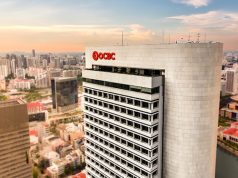PwC CEO Survey 2023: 73% Forecast Economic Growth to Decrease in 2023, Revenue to Decrease 26%, CEOs from India, China & Brazil Optimistic on Local Growth
21st January 2023 | Hong Kong
PwC has released the 26th Annual CEO Survey for 2023, surveying 4,410 CEOs from 105 countries & territories (23% of CEOs lead organisations with revenue of above $1 billion), providing key insights on CEOs views on the viability of their business, key challenges today, and how they are shaping the future of their company. Of the 4,410 CEOs, 73% forecast economic growth to decrease in 2023, revenue to decrease 26%, and CEOs from India, China & Brazil are more optimistic on local growth. In the next 10 years, 39% of CEOs view their business will not be economically viable in less than 10 years, with the top 5 most pessimistic sectors in Telecommunications (46%), Manufacturing (43%), Healthcare (42%), Banking & Capital Markets (41%), and Metals & Mining (41%). The top 5 key threats in the next 5 years are Macroeconomic Volatility, Inflation, Geopolitical Conflict, Cyber Risks, and Climate Change. Factors impacting profits in the next 10 years are Customer demand & preferences, Regulation, Labour & skills shortages, Technology disruptors, Supply chain disruption, Transition to new energy sources, New entrants (competitors). For the survey, PwC surveyed 4,410 CEOs in 105 countries and territories in 2022 (October & November). 23% of CEOs lead organisations with revenue of above $1 billion, 18% with revenue of $1 billion to $10 billion, 33% with $100 million to $1 billion and 38% with less than $100 million. 69% of the companies are privately owned. The PwC CEO Survey 2023 is titled – Winning today’s race while running tomorrow’s. See key summary & findings below. View Survey | View Full Report
“ 73% Forecast Economic Growth to Decrease in 2023, Revenue to Decrease 26%, CEOs from India, China & Brazil Optimistic on Local Growth “
PwC CEO Survey 2023 – 4,410 CEOs Worldwide

PwC has released the 26th Annual CEO Survey for 2023, surveying 4,410 CEOs from 105 countries & territories (23% of CEOs lead organisations with revenue of above $1 billion), providing key insights on CEOs views on the viability of their business, key challenges today, and how they are shaping the future of their company.
- 2% of them lead organisations with revenues of $25 billion or more
- 3% lead organisations with revenues between $10 billion to $25 billion
- 18% lead organisations with revenues between $1 billion to $10 billion
- 33% lead organisations with revenues between $100 million to $1 billion
- 38% lead organisations with revenues of up to $100 million
- 69% lead organisations that are privately owned.
PwC CEO Survey 2023
Key Summary – CEOs on Business & Economic Outlook
- Global Economic Growth in Next 12 Months – 73% Decline / 18% Improve
- Confidence on Revenue Growth in Next 12 Months – Decrease 26% in 2023 vs Increase 34% in 2022
- More Optimistic on Domiciled Country in Next 12 Months – India CEOs, Brazil CEOs, China CEOs
- CEOs Views on Business Viability – 39% (Less than 10 years), 59% (Viable for ore than 10 years)
- Top 5 Most Pessimistic Sectors by CEO – Telecommunications (46%), Manufacturing (43%), Healthcare (42%), Banking & Capital Markets (41%), Metals & Mining (41%)
- Factors Impacting Profits in Next 10 Years – Customer demand & preferences, Regulation, Labour & skills shortages, Technology disruptors, Supply chain disruption, Transition to new energy sources, New entrants (competitors)
- Top 5 Key Threats in Next 5 Years – Macroeconomic Volatility, Inflation, Geopolitical Conflict, Cyber Risks, Climate Change
Key Summary – CEOs Business Actions
- Driving current operating performance – 53% vs 43% (Actual vs Preferred time spent)
- Evolving business & strategy to meet future demands – 47% vs 57% (Actual vs Preferred time spent)
- Top 3 Investments in the Next 12 Months – Automating processes & systems (76%), Up-skilling (72%), Deploying technology eg. cloud, AI, advanced tech (69%)
- Managing Exposure to Geopolitical Conflict in Next 12 months – Investments in cybersecurity or data privacy, Adjust supply chains, Adjust current markets &/or expanding into new markets, Diversify product / service offering
- Actions Done / Considering – Reduce operating costs (85%), Diversify offering (83%), Raising prices (80%)
- No Plans / Not doing – Reduce compensation (80%), Delay deals (60%), Reduce workforce (60%)
- CEOs Collaborations – Established companies / competitors, Industry consortia, Entrepreneurs or start-ups, Governments, Academic institutions, NGOs (non-governmental organisations)
- Address Issues in Society – Sustainable development, Diversity & Inclusion, Education, Climate change, Infrastructure development, Public safety, Economic recovery, International development
- Top 4 Climate Actions – Reduce Emissions, Innovate Products & Processes, Develop Data & Strategy, Protect Assets & Workforce
Key Summary – Climate Actions
- Reduce Emissions – 83% are planning, started or completed
- Innovate Products & Processes – 81% are planning, started or completed
- Develop Data & Strategy – 80% are planning, started or completed
- Protect Assets & Workforce – 64% are planning, started or completed
- Apply Carbon Price on Decision Making – 54% do not plan to do this
1) CEO Views on Future of Business
CEOs Views on Business Viability:
- 10 years or less – 39%
- More than 10 years – 59%
CEOs by Sector – Most Pessimistic about Long-Term Viability (Less than 10 Years)
- Telecommunications – 46%
- Manufacturing – 43%
- Healthcare – 42%
- Banking & Capital Markets – 41%
- Metals & Mining – 41%
- Technology – 41%
- Automotive – 40%
- Business Services – 40%
- Media & Entertainment – 40%
- Transportation & Logistics – 40%
- Engineering & Construction – 39%
- Global – 39%
- Energy – 38%
- Private Equity – 38%
- Insurance – 37%
- Power & Utilities – 37%
- Real Estate – 36%
- Consumer – 35%
- Asset & Wealth Management – 33%
- Chemicals – 33%
- Hospitality & Leisure – 33%
- Retail – 31%
- Pharma & Life Sciences – 28%
- Forest, Paper & Packaging – 25%
Factors Impacting Profits in Next 10 Years
- Changing customer demand/preferences – 56%
- Changes in regulation – 53%
- Labour/skills shortages – 52%
- Technology disruptors (e.g., advanced tech, AI, metaverse, blockchain) – 49%
- Supply chain disruption – 43%
- Transition to new energy sources – 37%
- New entrants to my industry from adjacent industries – 29%
2) CEOs Views on Economic Impact
Key Threats in the Next 5 Years
- Macroeconomic volatility – 29%
- Inflation – 28%
- Geopolitical conflict – 25%
- Cyber risks – 25%
- Climate change – 22%
- Health risks – 13%
- Social inequality – 9%
Global Economic Growth in Next 12 Months
- Improve – 18% (2022: 77%)
- Stay the same – 8% (2022: 7%)
- Decline – 73% (2022: 15%)
Confidence on Revenue Growth in Next 12 Months
- 2023: -26%
- 2022: +34%
- 2020: – 22% (COVID-19)
More Optimistic on Domiciled Country in Next 12 Months (Global decline vs Domiciled Country decline)
- India CEOs – 78% vs 28%
- Brazil CEOs – 73% vs 27%
- China CEOs – 45% vs 18%
- United States CEOs – 84% vs 73%
- Japan CEOs – 76% vs 71%
- Italy – 63% vs 62%
More Optimistic on Global (Global decline vs Domiciled Country decline)
- France – 63% vs 70%
- Germany – 82% vs 94%
- United Kingdom – 71% vs 84%
Managing Exposure to Geopolitical Conflict in the Next 12 months
- Increase investments in cybersecurity or data privacy – 48%
- Adjust supply chains – 46%
- Adjust presence in current markets &/or expanding into new markets – 46%
- Diversify product / service offering – 41%
- Relocating our workforce – 10%
- Relocating physical assets – 9%
- None of the above – 11%
3) CEOs Actions to Manage Economic Challenges in the Next 12 months
Already Done / Considering
- Reduce operating costs – 85%
- Diversify product/service offering – 83%
- Raise prices of products and services – 80%
- Implement hiring freezes – 43%
- Reduce workforce – 39%
- Delay deals – 37%
- Reduce compensation – 6%
No Plans
- Reduce operating costs – 15%
- Diversify product/service offering – 16%
- Raise prices of products and services – 19%
- Implement hiring freezes – 56%
- Reduce workforce – 60%
- Delay deals – 60%
- Reduce compensation – 80%
Changes in Employee Resignation / Retirement Rates in the next 12 months
- Increase significantly – 2%
- Increase moderately – 11%
- Increase slightly – 23%
- No change – 37%
- Decrease slightly – 14%
- Decrease moderately – 10%
- Decrease significantly – 2%
4) CEOs Preparing for Today / Future
CEOs Time spent: Actual vs Preferred
- Driving current operating performance – 53% vs 43%
- Evolving business & strategy to meet future demands – 47% vs 57%
Investments in the Next 12 Months
- Automating processes and systems – 76%
- Up-skilling the company’s workforce in priority areas – 72%
- Deploying technology (cloud, AI, advanced tech) – 69%
- Adjusting the company’s supply chain (eg. near-shoring / on-shoring operations) – 41%
- Adopting alternative energy sources – 34%
- Decarbonising the company’s business model – 31%
- Exploring the metaverse – 12%
- Relocating the company’s operations in response to climate risk – 7%
Reinventing Business
- Automating processes and systems – 60%
- Up-skilling the company’s workforce in priority areas – 59%
- Deploying technology (cloud, AI, advanced tech) – 62%
- Exploring the metaverse – 62%
- Decarbonising the company’s business model – 58%
- Relocating the company’s operations in response to climate risk – 57%
- Adopting alternative energy sources – 55%
- Adjusting the company’s supply chain (eg. near-shoring / on-shoring operations) – 53%
In the Company
- Behaviours of employees are aligned with company’s values & direction – 85%
- Leaders in company encourage dissent & debate – 56%
- Leaders in company tolerate small-scale failure – 46%
- Final outcomes of the projects CEO review tend to meet or exceed initial forecasts – 45%
- Leaders in company make strategic decisions for their function or division without consulting me – 23%
5) CEOs on Collaboration, Social & Climate Issues
Collaboration – New Source of Value vs Address Issues in Society
- Established companies / competitors – 26% vs 13%
- Industry consortia – 20% vs 16%
- Entrepreneurs or start-ups – 20% vs 10%
- Governments (at national or local level) – 19% vs 18%
- Academic institutions – 16%vs 12%
- NGOs (non-governmental organisations) – 10% vs 14%
Collaboration – Address Issues in Society
- Sustainable development – 54%
- Diversity, equity and inclusion – 49%
- Education – 49%
- Climate change – 43%
- Infrastructure development – 29%
- Public safety – 22%
- Economic recovery – 22%
- International development – 18%
- None of the above – 6%
Climate Factors Impacting Business in the Next 12 Months
Cost profile
- Not at all – 13%
- To a limited extent – 36%
- To a moderate extent – 32%
- To a large extent – 13%
- To a very large extent – 5%
Supply chain
- Not at all – 22%
- To a limited extent – 34%
- To a moderate extent – 26%
- To a large extent – 13%
- To a very large extent – 3%
Physical assets
- Not at all – 34%
- To a limited extent – 41%
- To a moderate extent – 16%
- To a large extent – 6%
- To a very large extent – 2%
6) CEO Preparation for Climate Change
Initiatives to reduce company’s emissions
- Completed – 27%
- In progress – 39%
- Planned but not started – 16%
- We do not plan to do this – 17%
Innovate new, climate-friendly products or processes
- Completed – 25%
- In progress – 36%
- Planned but not started – 17%
- We do not plan to do this – 19%
Develop data-driven, enterprise-level strategy for reducing emissions & mitigating climate risks
- Completed – 23%
- In progress – 35%
- Planned but not started – 19%
- We do not plan to do this – 20%
Initiatives to protect company’s physical assets &/or workforce from physical impacts of climate risk
- Completed – 17%
- In progress – 27%
- Planned but not started – 17%
- We do not plan to do this – 36%
Apply an internal price on carbon in decision-making
- Completed – 11%
- In progress – 13%
- Planned but not started – 17%
- We do not plan to do this – 54%
PwC CEO Survey 2023
PwC surveyed 4,410 CEOs in 105 countries and territories in October and November of 2022. The global and regional figures in this report are weighted proportionally to country or regional nominal GDP to ensure that CEOs’ views are representative across all major regions. The industry- and country-level figures are based on unweighted data from the full sample of 4,410 CEOs. Further details by region, country and industry are available on request. All quantitative interviews were conducted on a confidential basis.
Among the 4,410 CEOs that participated in the survey:
- 2% of them lead organisations with revenues of $25 billion or more.
- 3% lead organisations with revenues between $10 billion to $25 billion
- 18% lead organisations with revenues between $1 billion to $10 billion
- 33% lead organisations with revenues between $100 million to $1 billion
- 38% lead organisations with revenues of up to $100 million
- 69% lead organisations that are privately owned.
PwC also conducted in-depth interviews with CEOs from three global regions (North America, Western Europe and Asia-Pacific). Some of these interviews are quoted in this report: The full interviews
PwC CEO Interview Series – Inside the Mind of the CEO Series
Americas
- Jones Lang LaSalle CEO Christian Ulbrich – United States Real Estate firm aims to build a better world
- Blackstone Founder Stephen A. Schwarzman – United States Private Equity group builder
- Bombardier CEO Éric Martel – Canada Private Jet bets on business aviation
Japan, Hong Kong, Taiwan, India
- Mitsubishi Corporation CEO Takehiko Kakiuchi – Japan Group Green transition
- Li & Fung CEO Spencer Fung – Hong Kong group seeking the future supply chain
- Miniwiz CEO Arthur Huang – Taiwan startup doubling down on upcycling
- Larsen & Toubro CEO S.N. Subrahmanyan – India Engineering & Construction firm mapping new growth
- Godrej Group Nisaba Godrej Executive Chair – India Consumer Products group innovates for emerging markets
- Kotak Mahindra Bank Uday Kotak Founder & CEO Uday Kotak – India Digital-first Banker
Southeast Asia
- Thai Union CEO Thiraphong Chansiri – Thailand Global Seafood company innovates for a sustainable future
- Lippo Karawaci CEO John Riady – Indonesia Conglomerate leader taking over a dynasty in a time of uncertainty and change
- Sime Darby Group CEO Jeffri Salim Davidson – Malaysia Conglomerate charts a course to stay ahead
- Tolaram CEO Sajen Aswani – Singapore-based group diversified strategy for growth in Africa
About PwC
At PwC, our purpose is to build trust in society and solve important problems. We’re a network of firms in 152 countries with over 328,000 people who are committed to delivering quality in assurance, advisory and tax services. Find out more and tell us what matters to you by visiting us at www.pwc.com.
Sign Up / Register
Caproasia Users
- Manage $20 million to $3 billion of assets
- Invest $3 million to $300 million
- Advise institutions, billionaires, UHNWs & HNWs
Caproasia Platforms | 11,000 Investors & Advisors
- Caproasia.com
- Caproasia Access
- Caproasia Events
- The Financial Centre | Find Services
- Membership
- Family Office Circle
- Professional Investor Circle
- Investor Relations Network
Monthly Roundtable & Networking
Family Office Programs
The 2025 Investment Day
- March - Hong Kong
- March - Singapore
- July - Hong Kong
- July - Singapore
- Sept- Hong Kong
- Sept - Singapore
- Oct- Hong Kong
- Nov - Singapore
- Visit: The Investment Day | Register: Click here
Caproasia Summits
- The Institutional Investor Summit
- The Investment / Alternatives Summit
- The Private Wealth Summit
- The Family Office Summit
- The CEO & Entrepreneur Summit
- The Capital Markets Summit
- The ESG / Sustainable Investment Summit










































